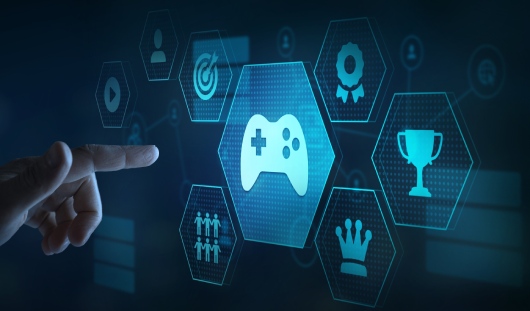-
The gaming industry is entering a transformative era fueled by rapid technological innovation. One of the most impactful developments is the rise of Decentralized Autonomous Organizations (DAOs). These blockchain-powered entities are reshaping how games are developed, managed, and played by introducing decentralized governance models. Through blockchain and smart contracts, DAOs give players real influence, increase transparency, and create more inclusive gaming ecosystems. For studios and platforms exploring this shift, working with a DAO development company can accelerate the design of governance frameworks that align with both community and business goals.
What are DAOs?
DAOs, or Decentralized Autonomous Organizations, are a novel type of organization that operates without centralized control. Governed by smart contracts on a blockchain, DAOs enable participants to make decisions collectively. DAOs are different from traditional hierarchical organizations. They spread authority across their members. They often use a token-based voting system. This decentralized structure ensures that decisions are transparent, democratic, and resistant to censorship or manipulation. In essence, DAOs function through predefined rules encoded in smart contracts. These contracts automate decision-making processes, enforce rules, and execute agreed-upon actions. Members of a DAO typically hold tokens that grant them voting rights, allowing them to propose, vote on, and implement changes. This model fosters a high degree of community involvement and ensures that the organization operates aligned with its members' collective will. Also, Read | GameFi and Blockchain: The Future of Online Gaming
The Need For Decentralized Game Governance with DAOs
Traditional game governance is predominantly centralized, with a small group of developers or executives holding the reins. While this model has worked for decades, it has drawbacks. Centralized governance can lead to a need for more transparency. It slows down responses to player feedback and can lead to decisions that may not align with the broader player community's interests. This centralized approach can stifle innovation and create disconnects between developers and their player bases. Enter DAOs. By decentralizing governance, DAOs address these issues head-on. They enable a more democratic and responsive approach to game development and management. In a DAO-governed game, players have a direct say in how the game evolves. It increases transparency and accountability and ensures the game develops in ways that resonate with its most dedicated players. You may also like | Saudi Arabia is Ready to Embrace Web3 and Gaming
What do DAOs offer in Gaming?
DAOs bring several key benefits to the gaming world, fundamentally changing how game developers, managers, and players experience and develop games.
-
Player Empowerment
DAOs provide players with a direct voice in the development process. Players can propose changes, vote on game updates, and influence key decisions. This empowerment ensures that the game evolves according to the community's preferences and needs.
-
Transparency
One of the core principles of DAOs is transparency. The blockchain records all decisions, transactions, and actions, creating an immutable and transparent history. This transparency builds trust among players and ensures that governance processes are fair and open.
-
Incentive Alignment
DAOs align the incentives of players and developers. Players can get tokens as a reward for contributing to the game's ecosystem. They can contribute through gameplay, development, or community engagement. These tokens often grant voting rights and a share in the game's success, encouraging players to invest time and effort into the game's development.
-
Community Building
DAOs foster strong communities by bringing together players who share a common interest in the game's success. Player involvement in governance and decision-making strengthens the bond between players. It also creates a more dedicated and engaged player base.
-
Decentralized Ownership
In many DAO-governed games, players can own a stake through tokens. This decentralized ownership model democratizes access to the game's financial success and encourages long-term commitment from players. Also, Read | Redefining The Gaming Industry with Play-to-Own Model
How do Gaming DAOs work?
Gaming DAOs typically have several vital steps. Blockchain and smart contracts make these steps possible.
-
Token Distribution or Tokenomics
Players acquire tokens through various means, such as gameplay, purchases, or contributions to the community. These tokens represent voting power within the DAO and can also have other utility functions within the game.
-
Proposal Creation
Any member of the DAO can create proposals for changes or new features. Community members submit proposals for consideration and discussion. They make sure that they evaluate ideas together.
-
Voting
Token holders vote on proposals. Voting power is usually proportional to the number of tokens held, allowing players with a greater stake in the game to have a more significant influence. This process ensures that decisions reflect the collective will of the community.
-
Implementation
Once the development team or automated smart contracts approve a proposal, they implement it. This step ensures that the game aligns with the community's preferences and makes changes transparently and efficiently.
-
Rewards and Incentives
Players who actively participate in governance or contribute to the game's development can earn additional tokens. These rewards incentivize continuous engagement and contribution, creating a positive feedback loop that benefits the entire game ecosystem. Discover | Gaming NFT Marketplace: A Comprehensive Analysis
Final Thoughts: DAOs Changing the Gaming World
Integrating DAOs into gaming signifies a paradigm shift in governing and developing games. This new governance model aligns the interests of developers and players. It fosters stronger communities and encourages continuous innovation and engagement. We can expect to see a more dynamic and player-driven development landscape. DAOs will lead the exciting transformation towards decentralized gaming governance in the future. Are you intrigued by the disruptive potential of Decentralized Autonomous Organizations (DAOs)? We can help you leverage this innovative structure to revolutionize your business operations. Our seasoned blockchain developers have the expertise to engineer a custom DAO solution that aligns with your needs. Contact us today!
-

Our Offices
INDIA
Emaar Digital Greens, Sector 61,
Gurugram, Haryana
122011.
Welldone Tech Park,
Sector 48, Sohna road,
Gurugram, Haryana
122018.















